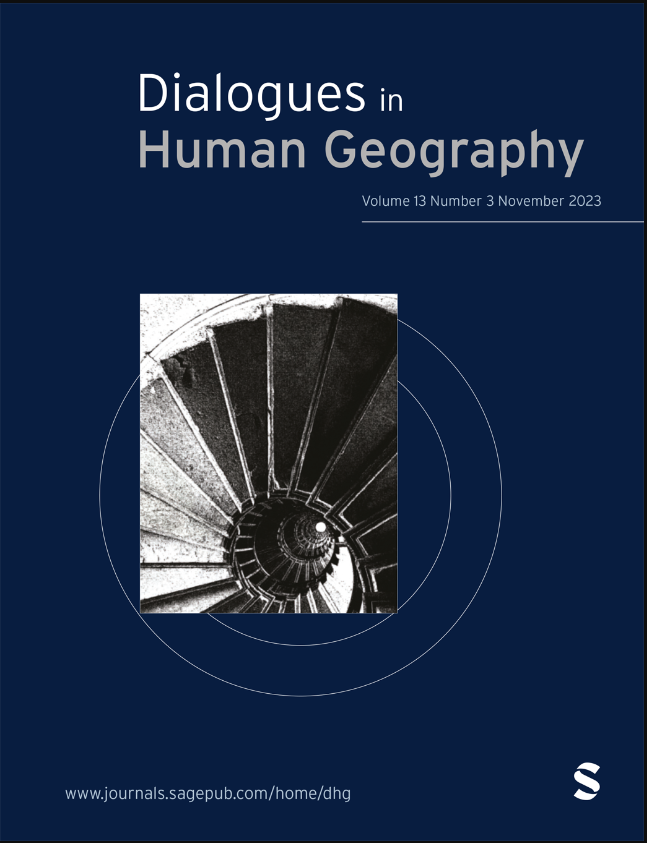自留性,革命的自发性,以及身-心-灵三分法
IF 8.2
1区 社会学
Q1 GEOGRAPHY
引用次数: 1
摘要
将列斐伏尔的自我估计理论视为“革命性的自发性”,涉及到将其与空间的重新分配联系起来,以反对新自由主义给世界各地的自然和人们的日常生活带来的统治。在这篇评论中,我通过在自然-社会的物质辩证方法中添加进一步重新评估身心精神三分法的必要性,阐述了这种“革命自发性”作为社会生态可持续性之路的繁荣所需的美学条件。在这样做的过程中,我认为我们需要将兄弟情谊视为一种与创造(自然和人)联系的方式,以促进实现全球自主。本文章由计算机程序翻译,如有差异,请以英文原文为准。
Autogestion, revolutionary spontaneity, and the trichotomy of body-mind-spirit
Conceiving Lefebvre's theorization of autogestion as ‘revolutionary spontaneity’ involves present it in relation to the reappropriation of space in opposition to the domination that neoliberalism has brought over nature and people's everyday lives around the world. In this commentary, I elaborate on the aesthetic condition that is also required for the flourishing of this ‘revolutionary spontaneity’ as a path to socio-ecological sustainability by adding to the material-dialectical approach of nature-society the necessity of further re-evaluating the trichotomy of body-mind-spirit. In doing so, I argue that we need to consider siblinghood as a way to relate with creation (nature and people) to foster the achievement of global autogestion.
求助全文
通过发布文献求助,成功后即可免费获取论文全文。
去求助
来源期刊

Dialogues in Human Geography
GEOGRAPHY-
CiteScore
8.00
自引率
4.00%
发文量
86
期刊介绍:
Dialogues in Human Geography aims to foster open and critical debate on the philosophical, methodological, and pedagogical underpinnings of geographic thought and practice. The journal publishes articles, accompanied by responses, that critique current thinking and practice while charting future directions for geographic thought, empirical research, and pedagogy. Dialogues is theoretically oriented, forward-looking, and seeks to publish original and innovative work that expands the boundaries of geographical theory, practice, and pedagogy through a unique format of open peer commentary. This format encourages engaged dialogue. The journal's scope encompasses the broader agenda of human geography within the context of social sciences, humanities, and environmental sciences, as well as specific ideas, debates, and practices within disciplinary subfields. It is relevant and useful to those interested in all aspects of the discipline.
 求助内容:
求助内容: 应助结果提醒方式:
应助结果提醒方式:


